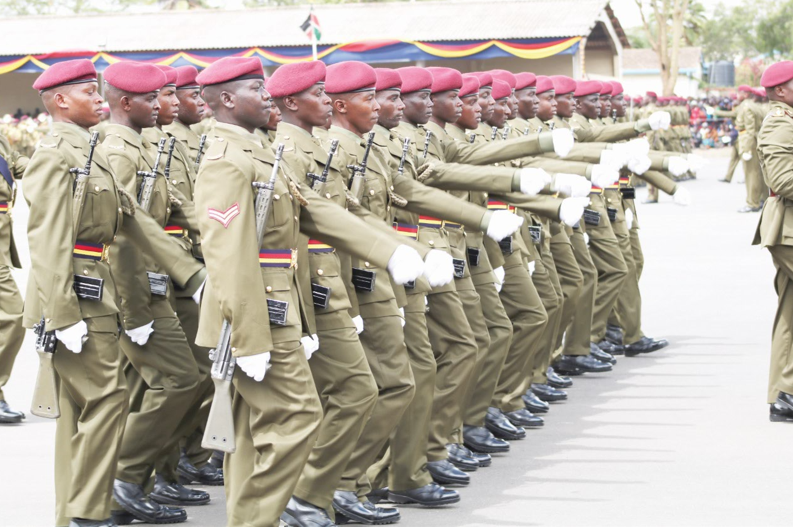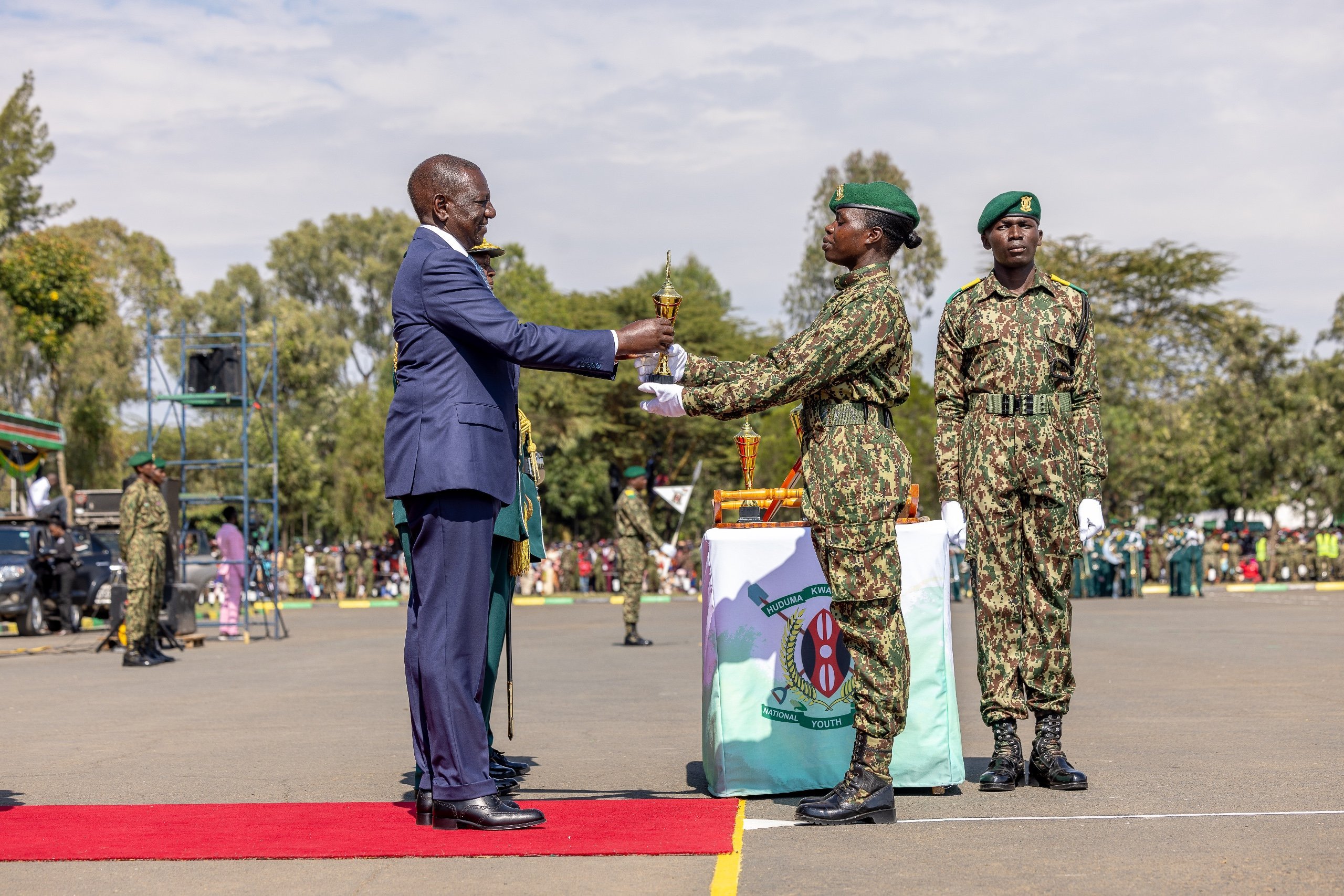What GSU officer will need to qualify for Haiti mission

Top bosses from the General Service Unit (GSU) of the Kenya Police Service have embarked on selecting the officers who will be deployed to Haiti to quell a surge in gang violence that has claimed 2,500 lives this year alone.
A signal dated October 7 from the GSU headquarters and addressed to Inspector General of Police Japheth Koome reveals that the formation has already started selecting suitable officers for the special assignment set to begin in January next year.
The move comes only days after the UN approved the international mission that will be funded by the US government, which is keen to end the Haiti hard drugs trade. Many of the drugs end up in the US but its past attempts to stamp out the trafficking led to accusations that America was seeking to occupy the small island nation.
This necessitated an international intervention involving police from various countries, led by Kenya, which has now started recruiting officers for the mission.
“In the view of this you are urgently required to subject names of officers, each to nominate two police constables, and one police corporal from your commands,” reads part of the signal seen by People Daily.
The letter further indicates that the officers must meet some minimum standards, among them, at least five years of service as officers. They must be aged between 20 and 55 years, must have not have more than two convictions. Any officer who has been convicted of a crime in the last six months will be automatically disqualified.
Other requirements are that the officers must be mentally, physically and medically fit and must have proven shooting skills. Although French is the national language in Haiti, officers to be deployed there must be proficient in English.
The signal further directed the commanders of various units and regions to select drivers and mechanics from the Recce unit. They have also been directed to deploy chaplains and counselors from the service to provide pyscho-social support for those who will be involved in action.
“The officer in charge of crime to nominate six signalers and drone operators,” says the signal.
“All the above nominated specialists and police constables must have two years of active service in the National Police Service and be aged between 20 to 40 years.”
Parliament’s approval
Kenya will be sending at least 1,000 police officers, mostly from the dreaded GSU, for the mission that many have described as dangerous given that gangs control over 80 per cent of Haiti’s capital, Port au Prince.
Yesterday, Interior Cabinet Secretary Kithure Kindiki came out to set the record clear that the law enforcers will only be deployed after approval from the National Assembly and the Senate as required by law.
“Before we embark on this mission, we will first ensure that this matter is taken to Parliament as the law directs us. The two Houses must approve. There will be no shortcuts. We will follow the Constitution to the letter,” he said.
“The deployment will not affect our elite, specialist-trained officers who are helping us in the fight against terror, banditry and also other serious threats to our national security”.
According to him, Kenya has enough security officers and the capacity to allocate police officers for the mission, and, as such, the deployment will not undermine Kenya’s security.
“I want to assure you that as the CS responsible for the security of the country, our deployment of officers in Haiti will not in any way affect our programmes, our resolve and commitment to make sure that we defeat all the enemies of our security across our country,” Kindiki said in Kiambu.
IPOA concerns
Only recently, the Independent Policing Oversight Authority ( IPOA) — through chief executive officer Elema Halake — said that it had not be consulted on the levels of preparations and planned deployment of police officers to Haiti.
He said although IPOA was keenly following concerns raised by Kenyans on the deployment of the officers, it was not ready to support nor hold accountable officers operating outside the country.
“The Inspector General of police is yet to respond to concerns raised by the authority on the welfare of the officers, including deployment, training offered, selection and coordination,” he said.
“It’s within the IPOAs mandate to enquire on the level of preparation; which units will be deployed and this is the part of the information we have been seeking but no answers have been provided yet.”
Last week, the UN Security Council said it had endorsed the deployment of the Multinational Security Support (MSS) Mission to Haiti, paving the way for countries such as Kenya to send their armed personnel to the Caribbean country.
The military could not be deployed since the threat to security in Haiti is posed by civilian gangs.
Global threat
United Nations Senior Human Rights Advisor Li Fung noted that Kenya has offered to have its officers deployed to the crime hotspot to offer support to the Haitain security personnel who have been facing challenges in their crackdown against the armed criminal gangs.
“There is need for support from any willing country,”Li said. “We have agreed to consider the offer that has been extended by the Kenyan government to consider deployment of its officers to Haiti,” she said.
The resolution, 2699/23, was endorsed by 13 of the 15-member UN Security Council, including Africa’s representatives; Mozambique, Ghana and Gabon.
The council passed the resolution under Chapter 7 of the UN Charter, which signals the situation in Haiti as a threat to global peace and security.
Drafted by the US and endorsed by Ecuador, it needed the validation of all permanent members of the Council, including the US, France, UK, Russia and China.
Russia and China abstained from voting, meaning that their stand did not affect the decision on the resolution, allowing pushers like the US to enable its suggestion to pass.
African countries in the council said the resolution would be an “important stepping stone” to address the security situation in Haiti.












